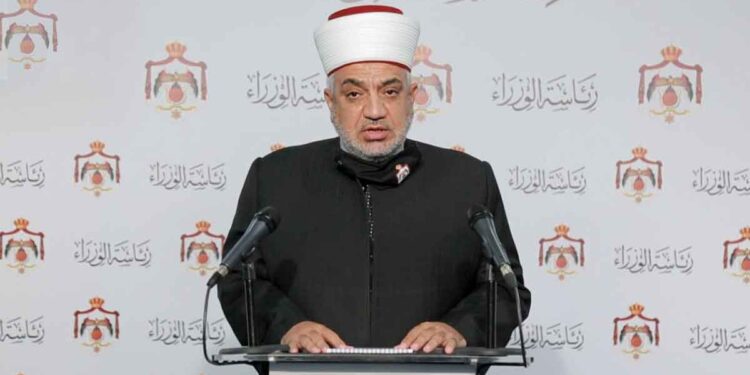In a blatant show of disregard for the right to free expression, the Jordanian Ministry of Awqaf, or endowments, and its minister in a personal capacity, have filed lawsuits against several activists for criticizing a number of the ministry’s recent measures.
Both the Jordanian Minister of Awqaf, Mohammad Al-Khalayleh, and his ministry have initiated lawsuits with the Amman public prosecutor and their office’s “cybercrime unit” against Marwan Al-Fauri, secretary-general of the Global Forum for Moderation; Thabet Assaf, spokesperson for the Islamic Action Front; and against the journalist Wael Al-Batiri. The Criminal Investigation Directorate’s (CID) cybercrime unit will question them, before transferring their files to the public prosecutor.
Al-Faouri and Assaf have explained that the lawsuit follows two Facebook posts in which they criticized a Friday sermon, written by the ministry and delivered nationally on 2 July, concerning “obedience to the guardian”. Al-Batiri has said that the complaint is due to a publication in which he criticized the ministry’s censorship of books and pamphlets able to be brought into mosques.
In media statements, Al-Fauri has said that the minister’s filing of personal lawsuits against critics “is unusual, and goes beyond the king’s platform for the country, and its calls for political dialogue, reform, and its setting a high bar for freedom.”
Al-Faouri has added, “we did not discuss anything that would harm the minister personally, and we did not attack the ministry. Rather, we peacefully criticized the ministry’s bringing up of outdated issues, which provoked many citizens.”
Al-Faouri expressed his surprise that “the Ministry of Awqaf, rather than guiding its own preachers – having them raise issues in a positive way – is now taking to task the people who directed positive criticism towards it.” And, he continued, “what has hurt and saddened us is this mentality, of solving problems through the exercise of power rather than through dialogue and the acknowledgment of mistakes.”
Al-Faouri underlined that the minister accused them in televised statements of being like “Islamic State” because of their disagreement, “a formula that has come to be used against anyone who criticizes the government or the ministry.”
Al-Khalayleh had said in several interviews that critics of the “sermon of obedience to the guardian” hold to an “Islamic State-takfiri” ideology, even whilst those same critics have called for moderation, which has itself provoked the angry popular reaction.
According to lawyer Ali Al-Armouti, lawyers all but unanimously agree that criticism of public figures and institutions is legally permissible.
Al-Armouti has said in public statements that the Jordanian judiciary has recourse to numerous rulings that insulting a public figure is a non-criminal matter, as based on constitutional rights to freedom of expression, and on international agreements signed by Jordan.
Nidal Mansour, spokesperson for the Center for the Protection of Journalists, has said that public figures, especially ministers and other parliamentarians, are expected to bear even harsh criticism since it is directed towards them as individuals in their professional capacity.
And, Mansour added, “it has been settled by judicial custom that criticism of a public figure can involve their social circle and that their private life shrinks and itself have an impact on their public work.”
“There are precedents, and the courts always accept the principle of criticism, and enshrine the media’s right to monitor public figures, including ministers.”
The annual Democracy Index report, issued by the Economic Intelligence Unit in early February, classified Jordan as an “authoritarian country” for the year 2020, “despite holding parliamentary elections.”


























